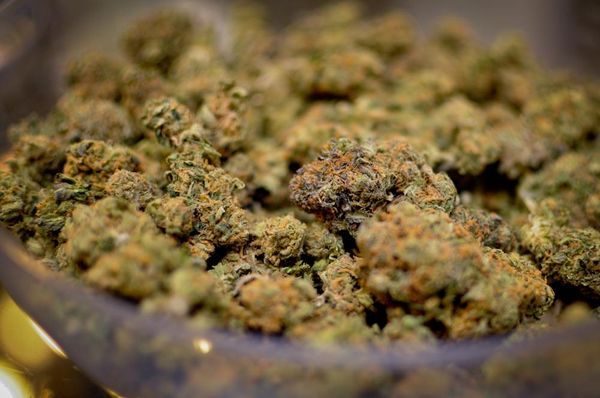- We often hear in the mass media that marijuana is as addictive as heroin; that its legalisation increases the number of users, and that is a “gateway drug” to other substances. Although arguments like this can he heard daily, few of them are backed up by science. Their diffusion in the press, however, gives rise to preconceptions against the plant, ignorance amongst users, and the promotion of prohibitionist policies. This study rebuts these prejudices.

One can regularly read statements about marijuana that everyone ends up parroting, though few know whether they are true or not. Even so, they spread like wildfire, fanned by the press, politicians and institutions. Many of these arguments lack any scientific validity, and represent unfounded prejudices that a study sponsored by the International Centre for Science in Drug Policy has refuted, with the assistance of a group of ten international academics and scientists.
Their intention is for the report State of the Evidence: Cannabis and Regulation to help spawn a new global conversation about cannabis, and get both citizens and political leaders to set conjecture aside. This is especially important at this time, as more and more places are moving towards regulation, such as in many US states, Uruguay, and even in places like Canada, Jamaica, Italy and Spain, which are beginning to face new challenges in the cannabis sphere.
The researchers analysed the most common arguments wielded with regards to cannabis consumption and regulation, taken from articles and news stories published in the media, as Dan Werb, director of the institution that backed the report, explained to Dinafem. Moreover, these professionals analysed numerous existing scientific studies in order to review their findings in relation to these arguments.

They selected 13 of the most common, which they classified as weak to moderate, based on whether there are studies supporting them or they were undermined by problems in their methodology, in their samples, or with regards to who was behind them. Altogether, 11 of the 13 assertions were considered weak (6 of them related to regulation, and 5 to consumption), meaning that they are nothing more than prejudices, or that there is not enough evidence to confirm their veracity.
For example, with respect to the opinion that some harbour about cannabis consumption, the professionals found weak support for views like: that it is as addictive as heroin, that it is a gateway drug to certain substances; that its consumption can cause deadly damage to the heart and the arteries, in addition to cancer; and that it can have serious long-term consequences, ultimately leading to schizophrenia.
Hart explained that it is worrisome that false statements like that related to heroin can be published as a major news story when, according to him, not even 1 out of every 10 regular marijuana users ever become dependent on it, whereas 1 out of every 4 heroin users becomes addicted to this drug.
According to the report, one is more likely to become hooked on nicotine than on marijuana. And the study cites an example: many people are addicted to caffeine, but this does not pose a public health problem.
With respect to whether its use leads to that of certain other drugs, for example, the study concluded that there is no evidence demonstrating this, and neither did it find any proof that it causes lethal damage to the heart, or cause lung cancer.
According to the study, tobacco users are actually more likely to suffer from lung problems than cannabis users are. Neither is there any reason to believe that grass consumption can cause schizophrenia, although some people who suffer from this disorder need marijuana to deal with it (which is not the same thing).

In relation to statements regarding regulation, in the meantime, they also found scant support for, among others, the assertion that legalisation encourages more people to consume, that it does not reduce the incidence of certain crimes, that it increases the number of traffic accidents, and that it promotes drug tourism. These are arguments that are misinterpreted or exaggerate the scarce scientific evidence existing to support them.
With respect to the first, the study indicates that it is not possible to determine whether legalising recreational marijuana in a given place may increase consumption. Among other things, it is impossible to properly analyse the situation and reach a conclusion because there are few places that are now regulating the substance, and they have begun to do so only recently.
As for the argument regarding cannabis tourism, the report states that this claim is normally based on the case of Amsterdam and, as such, cannot be generally extrapolated to other places. In fact, there are some areas, like Uruguay, that restrict the sale of cannabis to their citizens. In any case, the report also points out that this type of tourism is not necessarily negative.
With respect to reduced crime, the study states that many cases have been identified in which regulation has wrested the cannabis market from the hands of drug traffickers and placed it in the government's, thereby reducing criminality and ensuring greater safety for users. The conclusion of these findings is that the global conversation with respect to marijuana is rife with unfounded opinions.
According to Hart, these types of prejudices prevent citizens from understanding the issue correctly, impeding a proper grasp of questions related to cannabis and, ultimately, leading to harmful policies. He believes that the main reason for the continuous circulation of false statements about marijuana is that ordinary people need to validate their instincts and what they think and have been taught for many years.

He is aware that for decades, people have been taught thatcannabis consumption is highly detrimental, and that its prohibition is effective at reducing its supposedly injurious effects. Therefore, it is not easy for those who receive new information (even when it is positive) to keep from reverting to their preconceived ideas.
This means that when there is a new scientific finding, for example, related to the therapeutic properties of cannabis, news is immediately published misinterpreting it. “Unfortunately, the subsequent corrections refuting the news do not tend to attract the media or public's attention in the same way. That is, the new scientific interpretations (which could support marijuana) do not generate headlines.
Moreover, he explains that the scientists who analyse the health care and social repercussions of substances like cannabis “are generally funded by government agencies,” which tend to underscore the negative effects of drugs, so as to vindicate their decisions, with researchers then reluctant to contradict their statements.
As a result, research into the potential benefits of cannabis has been marginalized, and studies on its therapeutic properties receive little financing.

Hart explains that, in light of the fact that political decisions are influenced by public opinion and the mass media, “there exists the serious danger that distorted evidence regarding cannabis will end up giving rise to ineffective or detrimental policies.” He adds that if the general public and legislators cannot distinguish between what is true and false, it will not be possible to make the right decisions with respect to the plant.
In addition to this, he believes that, though there is an abundance of scientific literature on the subject, in the end citizens are only exposed to the results from the most extreme or surprising studies. Thus, he believes that it is necessary to understand the scientific evidence on the subject in a comprehensive way if one is to overcome bias.
In Hart's view this is the first step, as a society, to determine how we are going to address all that related to the plant and to decide on the policies shaping the “the best path to take.” Whatever the case, these types of studies bring hope to the cannabis sector, demonstrating that it is possible to challenge the propaganda.



Comments from our readers
There are no comments yet. Would you like to be the first?
Leave a comment!Did you like this post?
Your opinion about our seeds is very important to us and can help other users a lot (your email address won't be made public).